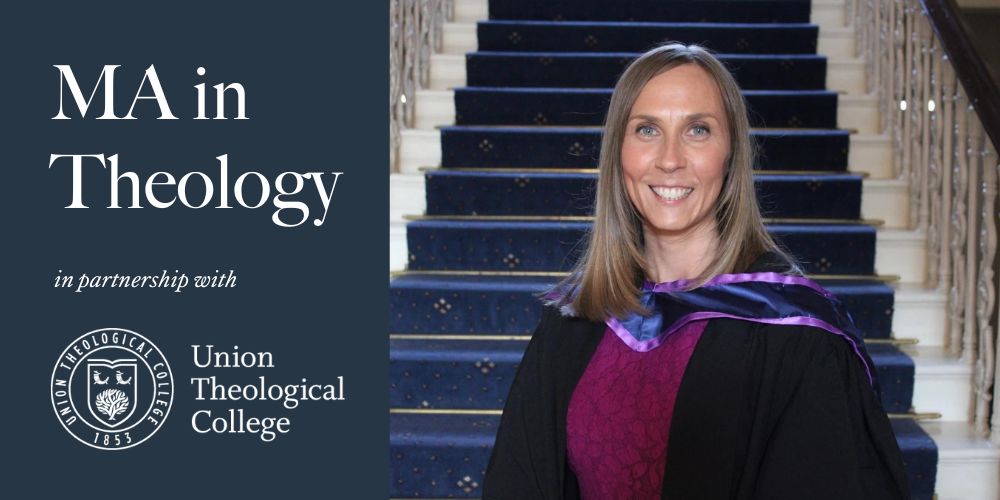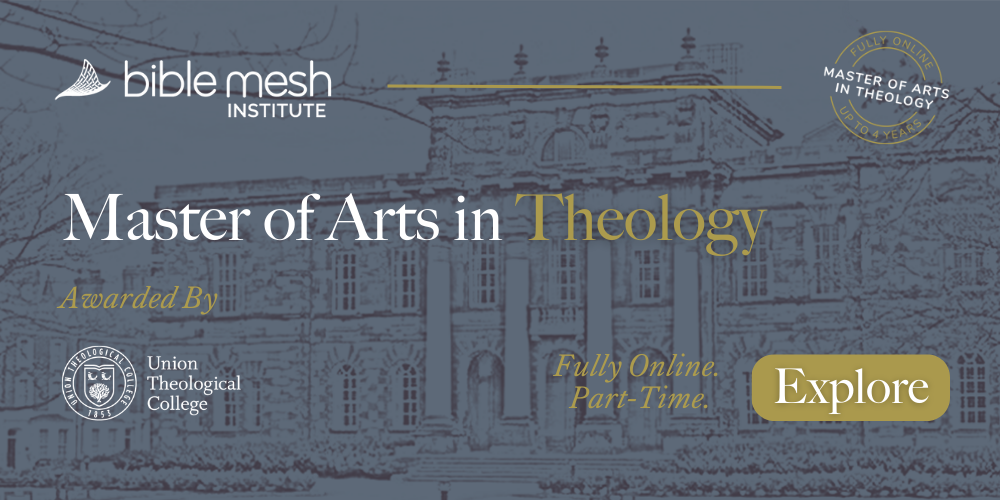The following is adapted from a recorded interview between Dr. Dennis Greeson, Dean of the BibleMesh Institute and Programme Coordinator for the Master of Arts in Theology programme, and Joanna McFarland, a recent graduate of the programme.
Tell us about yourself, what you are currently doing, where you are from, as well as your background before entering the Masters program.
I am Joanna McFarland, and I am from Northern Ireland. Prior to the programme, I did mission work in London among Muslims, and from that grew interested in Christian apologetics and did a bit of training with the church on how to share the gospel effectively with Muslims.
After that I moved into church ministry in London at the church I had been attending. I began working with women and youth, and it was out of joining staff at that church that the ministers thought I would be suited to further theological studies.
That is where the interest in enrolling in the Masters of Arts in Theology programme came from. The offering of the MA online through BibleMesh meant I could do it remotely from London, where I was working in ministry.
What was your educational background prior to entering the program? Had you done any formal theological study?
Previously, I was a multimedia developer. I worked for the local education and assessments board on the multimedia developing team and developed eLearning tools for primary and secondary school.
I had lectured in information and communication technologies, so church ministry and theological studies was quite a big turnaround. God pushed me in a completely different career direction.
Before doing the Masters, I had completed Proclamation Trust’s Cornhill training course. That was my only other formal Bible training. My experience had only been in the local church, youth fellowship, and leading Scripture Union camps with teenagers.
Going into the program, what were you hoping to get out of it? What were the motivating factors for studying academic theology in that way?
I thought I would have one year in mission work and then return to multimedia. Then I realized when you are in ministry, whether it is one to one with women, or preparing youth studies or Bible studies, there are many things that you don’t have a good handle on unless you receive formal training.
So, I thought it would be better to go deeper and really think on things, especially church history, like why do we have creeds and why do churches do things a certain way. I found myself often in difficult counseling situations where people going through difficult things would question why is God doing this or that, and my limited answer would be “We know who God is, we know God is always good and we can trust Him.”
Getting the time and the head space to think deeply about God, His church and better understand the Bible is invaluable in those pastoral situations.
However, I asked my church minister at the time, “Is there any deeper pastoral training you can give me that would be helpful?” My minister at that time said to do more theological studies. Getting the time and the head space to think deeply about God, His church and better understand the Bible is invaluable in those pastoral situations.
Knowing those tension points and what you were seeking, how did the program relate to that? Did it provide what you were looking for, or did it do something different?
The programme exceeded what I thought it was going to do! I had no idea what I was letting myself in for. The depth of academic study and the depth of the course were brilliant. We’ve got the modules in the Doctrine of God, Christology, the Holy Spirit, Ethics, Salvation, Eschatology. It’s a brilliant scope just to learn for ministry. Having time to think deeply about each of those areas and learn more about God and who He is was really helpful.
Balancing everything was tricky. Obviously, with working full time in ministry, you can’t just put an out of office on and close the door and say that I’ve got an essay to do or other schoolwork to complete. A number of times I was working and interrupted, and just had to submit what I had and deal with the situation.
Still, I learned so much from each module. That’s the most important thing. The reading lists from the modules are so helpful for ministry. It prepared me even better than I thought it would.
What types of skills do you feel like you picked up from the program?
Keeping essays concise but also thinking really deeply was a major skill I learned. To get through all the work, you have to be disciplined. Working in ministry, I had to make sure I had my reading done, because you don’t know when something is going to crop up before your deadline. I had to develop skills on being disciplined and reading quickly, and also reading effectively.
Being able to skim through things to see what you need to read closely, as well as being able to concisely write what you need are useful skills for everyday life, not only with academics.
What’s the connection between those types of skills and what you’re encountering in ministry. Are there any overlaps?
I think there is an overlap. Ministry is busy and you have deadlines of a different type. If you are preparing Bible studies for different groups or you are going to give talks or sessions for different things, you need to prepare in advance. You need to have done the groundwork whether it is a Bible study or a Bible series.
For instance, I’ll be thinking through how to approach different books of the Bible and how to teach their message to other people. You can do all your thinking before that but then you have to actually prepare your resources for your group. It’s not exactly the same—you’re not writing an essay—but in ministry tasks like this, you have to prepare a study on a set text in a certain number of weeks, and in this way there are similarities to the skills learned in the programme.
What would you say to someone who is either considering the MA program or perhaps they are about to start the program? What words of wisdom might you give?
If I was starting all over again, I’d want to be more prepared for what to expect in the modules. I would encourage students to make an early start on the reading and essays. I’d also encourage them to enjoy their studies as well. Read for your own nourishment. What you are learning about will have a lasting impact in your work if you are in ministry, in your life, and in your walk with God. Read as much as you can and try to enjoy it.
What you are learning about will have a lasting impact in your work if you are in ministry, in your life, and in your walk with God.
This programme not only really helped better equip me for my ministry, but also helped form and deepen my personal faith. I would recommend it to anyone wanting to go deeper in their knowledge of God, the Bible, and how to share your faith by drawing on the wisdom of church history.
For more information about the programme Joanna completed, including price and admission requirements, visit the MA in Theology degree programme page. If you would like to know more about our programme, you can register your interest or sign-up for a monthly interest webinar.

